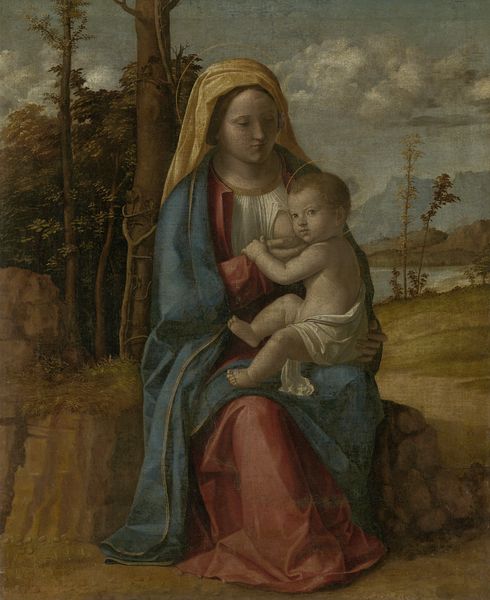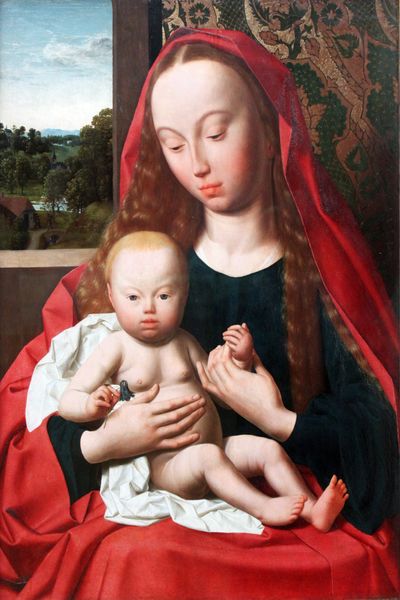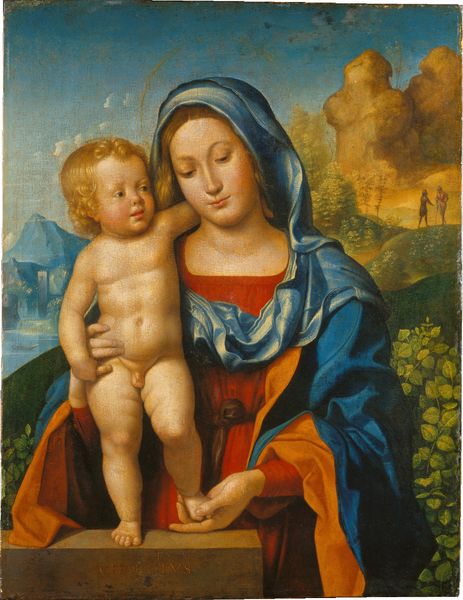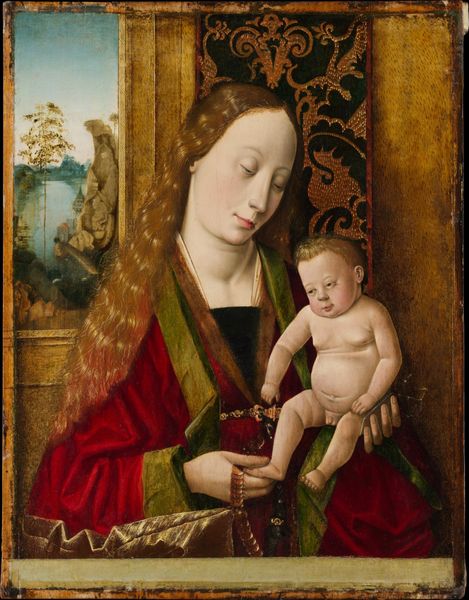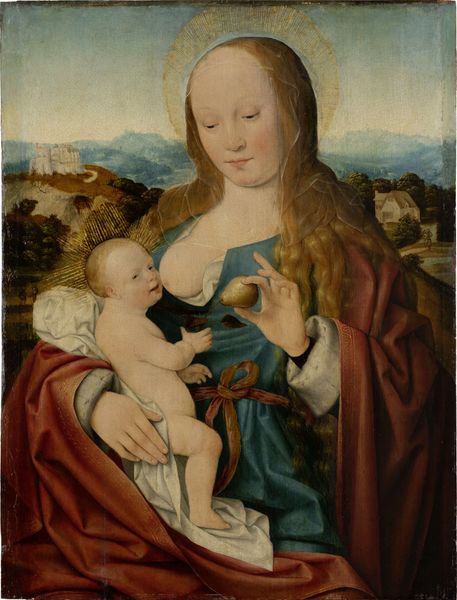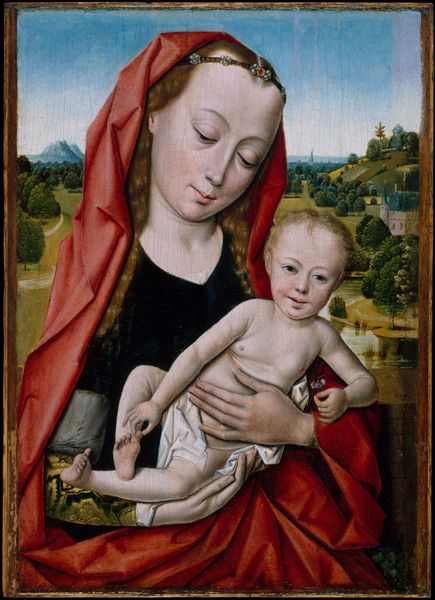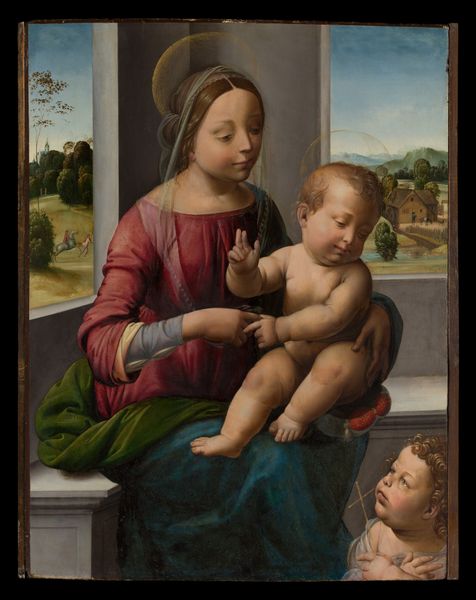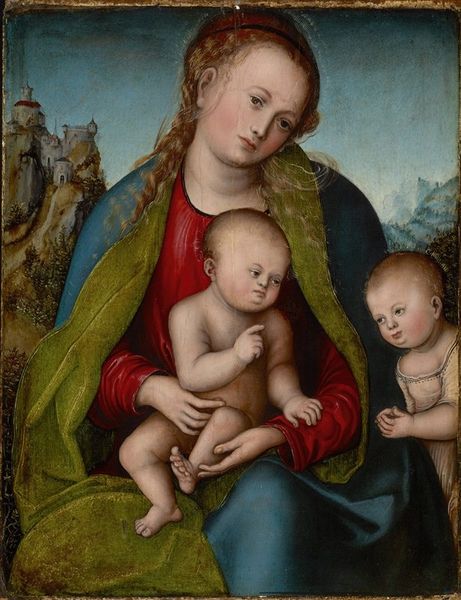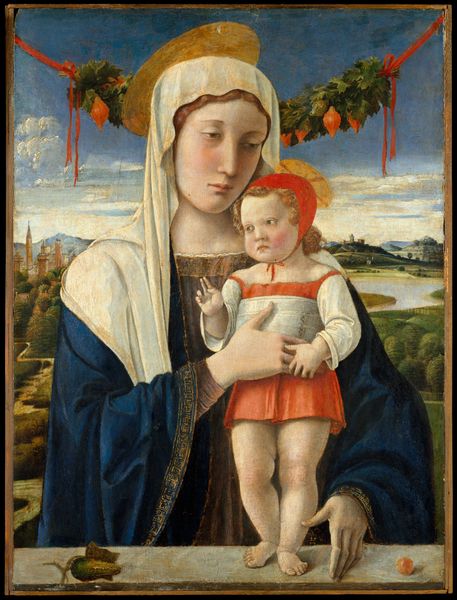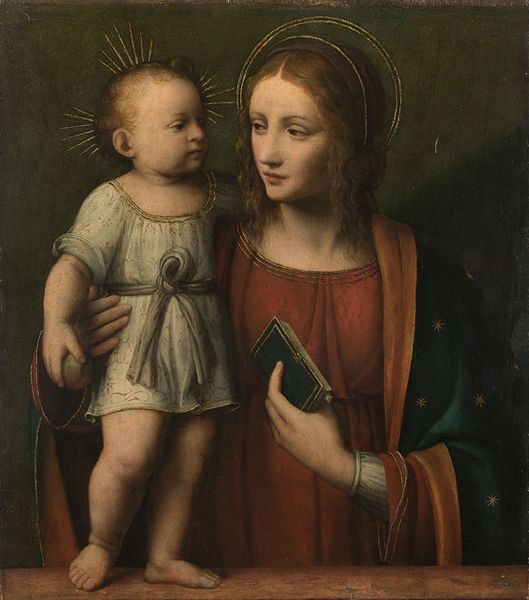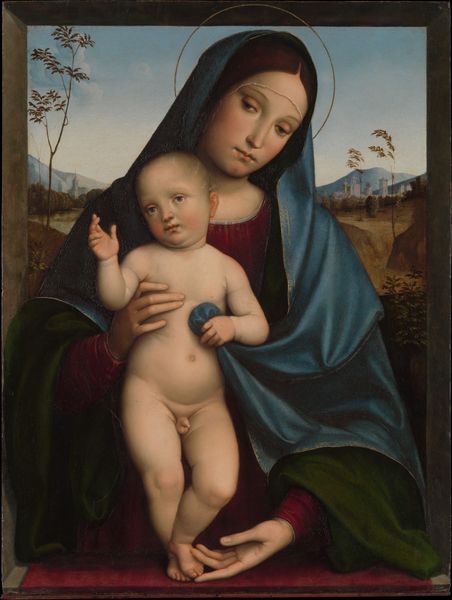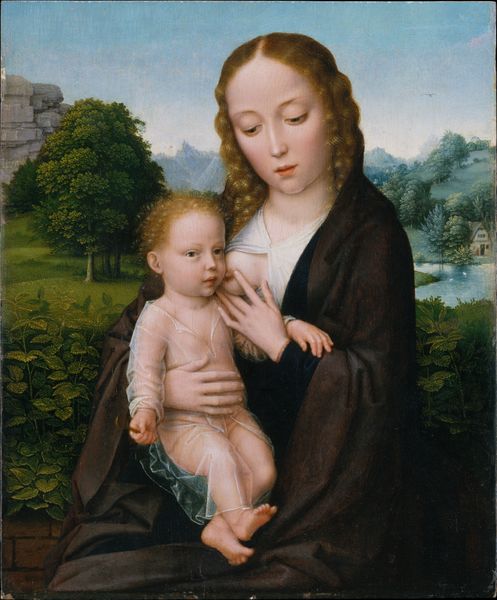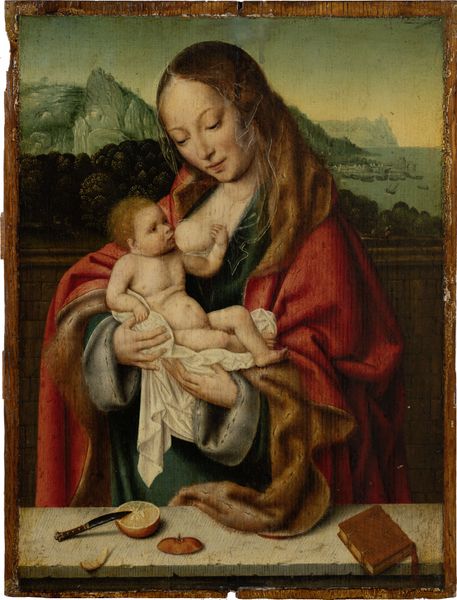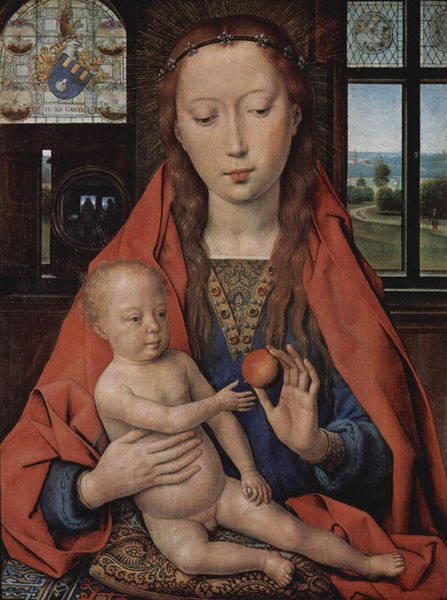
oil-paint
#
portrait
#
oil-paint
#
landscape
#
figuration
#
oil painting
#
child
#
genre-painting
#
history-painting
#
italian-renaissance
#
portrait art
Dimensions: 37 1/2 x 30 1/4 in. (95.3 x 76.8 cm)
Copyright: Public Domain
Curator: Looking at "The Rest on the Flight into Egypt" by Jan Massys, dating from around 1537 to 1540, one is immediately struck by the intimate, almost portrait-like quality despite its narrative subject. It's currently housed at the Metropolitan Museum of Art. What is your immediate take on it? Editor: A serene calmness. The figures are poised, yet it feels as though their rest is somewhat precarious given the landscape behind them. A compelling contrast between their quietude and a world in subtle unrest. Curator: The choice to set this traditional scene against such a vivid and slightly unsettling background is interesting. It definitely lends itself to interpreting the emotional experience Mary must have felt as they fled Herod. Editor: Precisely. The landscape isn't just background; it actively participates in the story, doesn't it? The symbols, like the fruit Mary holds, also resonate. Is it about nourishment for the future, or could it refer to something more? Curator: The grapes definitely hint at Eucharist, signaling the future of Christ’s sacrifice, as does the halo around Mary's head. But observe how human Massys renders her, tired but determined. It's less an idealized religious image and more about a mother's plight. Editor: Right. And seeing this portrayed by a Renaissance artist during a time of religious and social upheaval is fascinating. To what degree would you say Massys challenged or upheld contemporary societal perceptions of motherhood and divinity with this work? Curator: I’d argue that by combining the quotidian and the divine, he was inviting viewers to reconsider their relationship with these traditional religious figures, portraying the Holy Family's tribulations during a challenging period in a new way, humanizing them for greater accessibility and empathy. It's a nuanced piece, open to many readings, both devotional and socio-political. Editor: An evocative conversation indeed, it pulls you in many directions simultaneously. Curator: Exactly. And these shifting meanings within this captivating portrait continue to spark compelling dialogues today.
Comments
No comments
Be the first to comment and join the conversation on the ultimate creative platform.
